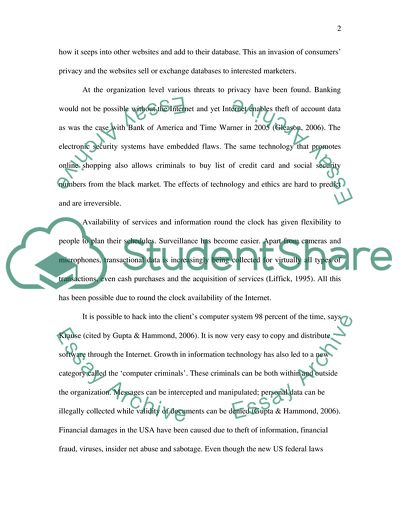Cite this document
(In what ways does the internet erode or threaten privacy Essay, n.d.)
In what ways does the internet erode or threaten privacy Essay. https://studentshare.org/information-technology/1714611-in-what-ways-does-the-internet-erode-or-threaten-privacy
In what ways does the internet erode or threaten privacy Essay. https://studentshare.org/information-technology/1714611-in-what-ways-does-the-internet-erode-or-threaten-privacy
(In What Ways Does the Internet Erode or Threaten Privacy Essay)
In What Ways Does the Internet Erode or Threaten Privacy Essay. https://studentshare.org/information-technology/1714611-in-what-ways-does-the-internet-erode-or-threaten-privacy.
In What Ways Does the Internet Erode or Threaten Privacy Essay. https://studentshare.org/information-technology/1714611-in-what-ways-does-the-internet-erode-or-threaten-privacy.
“In What Ways Does the Internet Erode or Threaten Privacy Essay”. https://studentshare.org/information-technology/1714611-in-what-ways-does-the-internet-erode-or-threaten-privacy.


